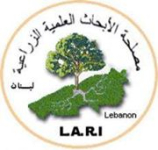To deliver the adequate technologies and practices and customize them for the local context, ICARDA will first conduct the field survey and consultation with local stakeholders. This process will take into account other ongoing support for the agriculture livelihood and business development in Qabb Elias and the surrounding villages to bring synergy among the projects. ICARDA, in collaboration with LARI and local community institutions, will select a number of farms, will undertake field visits and surveys across the valley (depending on the budget available) into which new irrigation and agricultural practices will be implemented. Consultations would include to the extent possible, women representatives from the local community. Options for improvement will be developed and interventions will be determined for each farm based on the prevailing conditions. Implementation of packages will be made with LARI and local cooperative and the municipality, in order to ensure the sustainability and scale-up of the project. A capacity development and training program will be designed for the farmer and technician groups expected to supervise the development from the municipality and the cooperatives. The program will use an on-the-job training approach during the implementation and formal training courses when needed. Training will include improved irrigation systems implementation and management, selecting and applying improved agricultural packages and disseminating technologies to other farmers. In the training session to farmers, ICARDA will consider the participation of Syrian refugee farmers by coordinating with UNHCR to identify potential beneficiaries from refugees (with the objective of increasing women beneficiaries to the extent possible).






